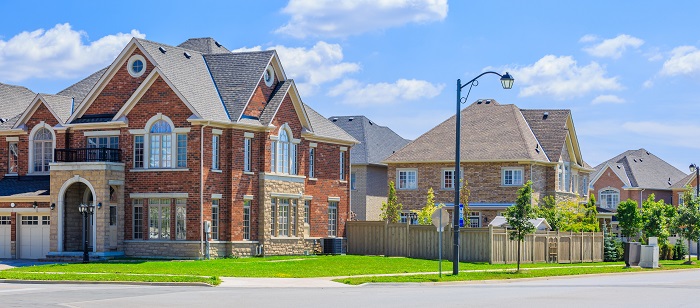The biggest misconception is that the appraisal value is determined using the neighborhood’s dollar per square foot cost. This is not the case! It’s actually reversed. So the price per square foot is the result of the appraised value.
Check out the home appraisal process for more details on appraisals and an overview of the appraisal process.
A home’s appraisal value is determined by other comparable homes in the area that have recently sold. These sales are known as “comps” – which is short for “comparable”.
An ideal home appraisal is looking for comps sold within the last six months, within a one-mile radius, and with comparable characteristics of the subject property. These are rough guidelines and not absolutes. For that reason, exceptions to these parameters are made very frequently.
Some of the primary characteristics compared are the square footage, room count, lot size, garage size, backyard amenities, etc. Check out how Appraisers measure square footage.
Comps are recently sold homes that are similar to the subject property. In a perfect world, the appraisal will “bracket” the subject property with four sold comps and two active listings. Bracketing means that two of the comps would be slightly smaller than the subject property, two slightly larger, and two about the same size as the subject property.
Appraisal Related Articles
- Home appraisal process (great overview of the process)
- Don’t pay for the appraisal too soon
- How appraised value is determined (hint: it’s not price per square foot)
- Avoid appraisal pitfalls
- Appraised value vs. sales price – how to prepare for the worst
- How to fight a low appraisal

Price Adjustments
Price adjustments are based on differences in the home’s characteristics and a net value is created for each comp. The dollar amount of adjustments varies between neighborhoods and the Appraisers keep abreast of this information. For this reason, it is difficult for the laymen to accurately estimate values.
The appraisal value is determined by the compilation of all the comps’ net values. From this value, the price per square is derived.
Price Adjustment Example
Let’s assume a comp sold for $410,000 and is 175 square feet bigger than the subject property. An Appraiser may determine that the 175 extra square feet may fetch an extra $8,000 when all other things are equal. Therefore, the adjusted value for the comp becomes $402,000 since that adjustment was not in favor of the subject property.
Let’s continue.
Perhaps the subject property has a three-car garage and the aforementioned comp only has a two-car garage. The Appraiser’s research shows that a three-car garage typically sells for $3,000 more than a two-car garage. As a result, the net value of the comp can be increased by $3,000 for a total of $405,000 ($402,000 + $3,000).
As a result, our subject property (assuming all things equal and not using other comps) would have a value of $405,000.
In conclusion, the appraisal value is determined by recently sold comps in the neighborhood. The better the comps, the better the valuation.
What’s Next
Mark and the team can walk you through the entire home loan process and mortgage loan process. Call us with any questions and let us know how we can help.
Next: processing & credit approval
Previous: home appraisal process
